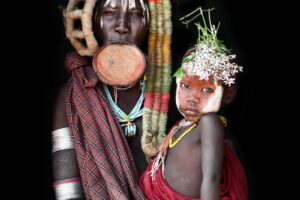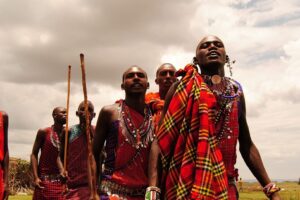Female Genital Mutilation (FGM), also known as female circumcision, is a deeply entrenched cultural practice in various parts of Africa, particularly in regions such as East Africa and parts of West Africa. This practice, although steeped in tradition, has raised significant concerns due to its harmful health effects and violation of human rights.
**Historical and Cultural Context**
FGM has historical roots in certain African communities where it is often seen as a rite of passage or a way to preserve chastity and ensure marriageability. Different communities have varying practices, ranging from a symbolic nick to extensive cutting that can cause lifelong health complications. The cultural significance attached to FGM underscores the complexity of addressing this issue.
**Health Implications and Risks**
One of the primary concerns surrounding FGM is its detrimental impact on women’s health. The procedure, often performed without proper medical expertise or sanitation, can lead to severe pain, infections, complications during childbirth, and psychological trauma. Long-term consequences such as chronic pain, sexual dysfunction, and increased vulnerability to HIV/AIDS further underscore the urgent need to address FGM.
**Legal and Human Rights Perspectives**
Efforts to combat FGM have gained momentum globally, with many countries enacting laws to criminalize the practice and protect women and girls from its harms. International organizations, human rights advocates, and grassroots movements have been instrumental in raising awareness, providing support to survivors, and advocating for policy changes to eliminate FGM.
**Challenges and Progress**
Despite ongoing advocacy and legal measures, challenges remain in eradicating FGM completely. Deep-rooted cultural beliefs, social pressures, and lack of education contribute to the persistence of this practice in certain communities. However, there have been notable successes, including community-led initiatives, education programs, and collaborations between governments and NGOs to promote alternative rites of passage and empower women and girls.
**Moving Forward: Education and Empowerment**
Education plays a crucial role in addressing FGM by challenging harmful beliefs, promoting gender equality, and empowering women and girls to make informed decisions about their bodies. Comprehensive healthcare services, including counseling and support for survivors, are essential in mitigating the physical and psychological consequences of FGM.
**Conclusion**
Female Genital Mutilation remains a complex and sensitive issue deeply rooted in cultural traditions, health concerns, and human rights violations. By fostering dialogue, promoting education, enacting and enforcing laws, and supporting community-driven initiatives, we can work towards ending FGM and ensuring the health, dignity, and rights of all women and girls in Africa and beyond.



















Add Comment